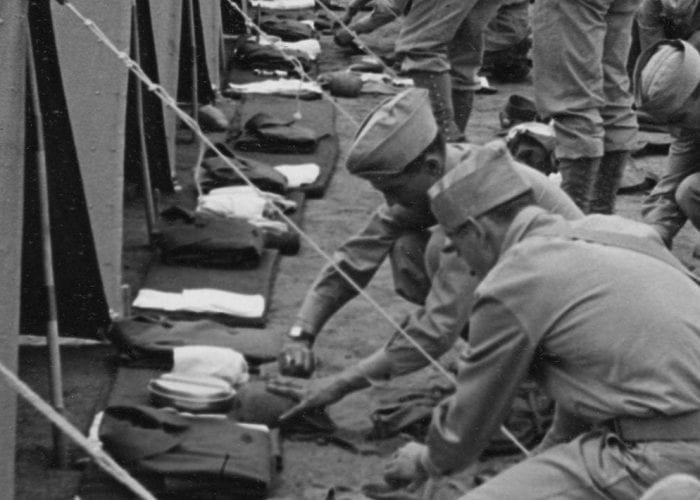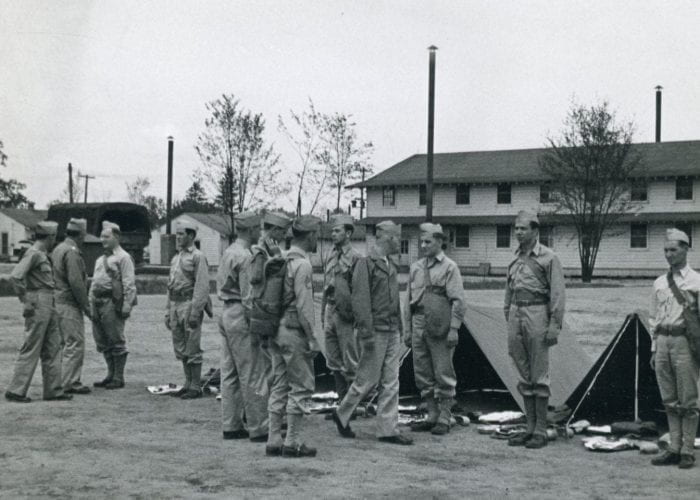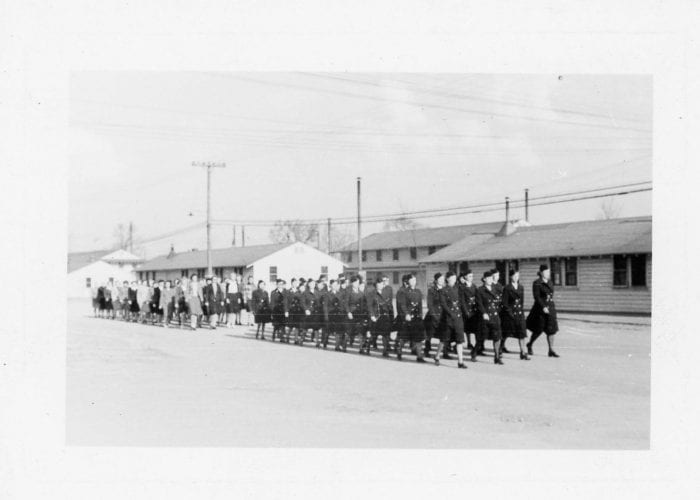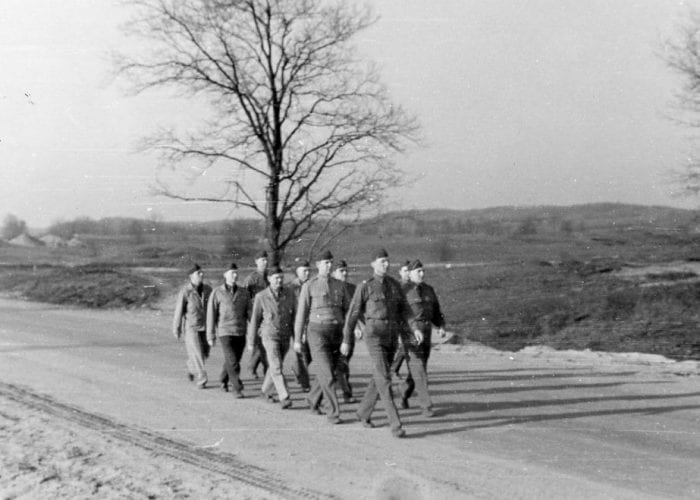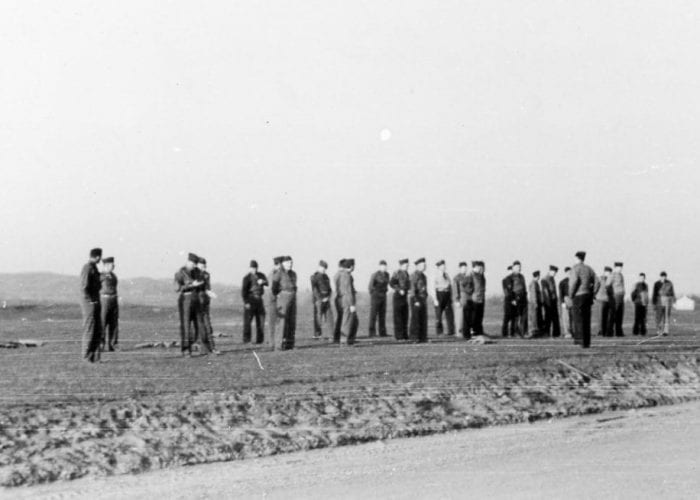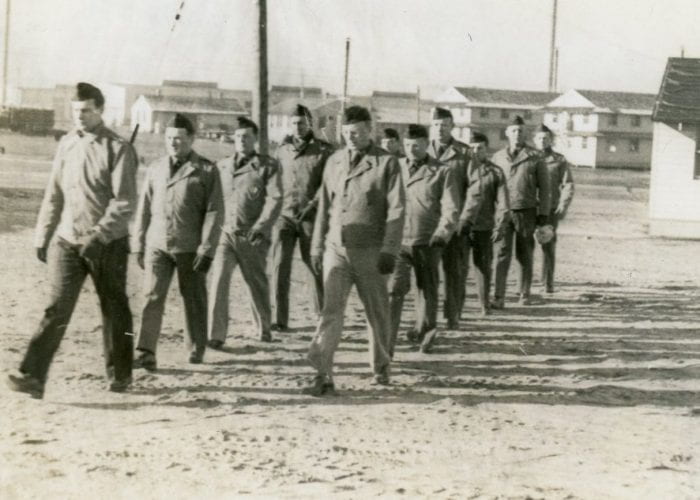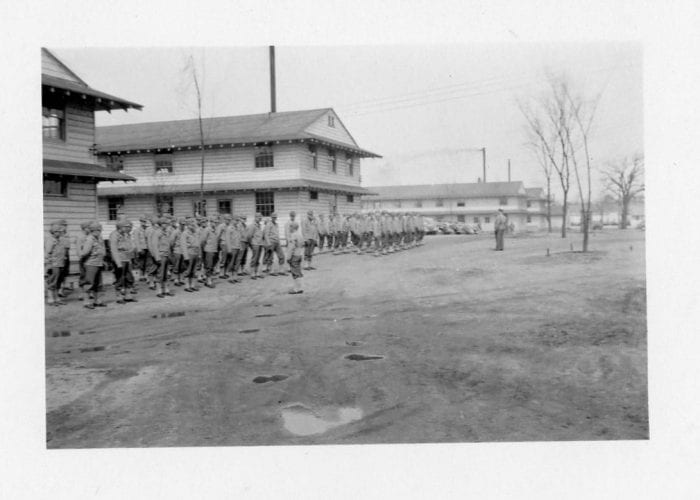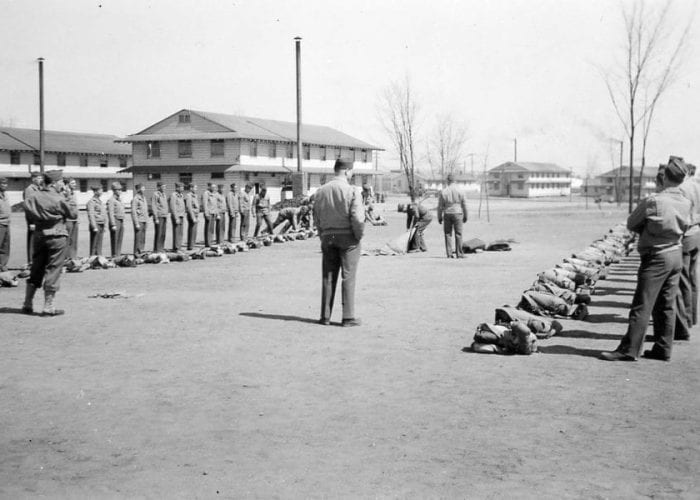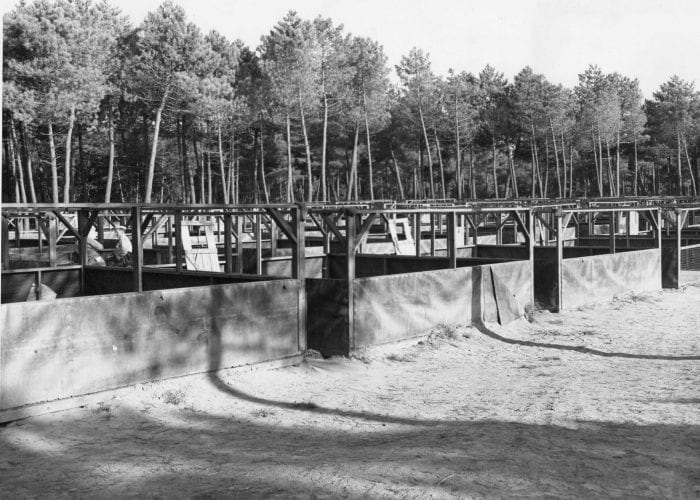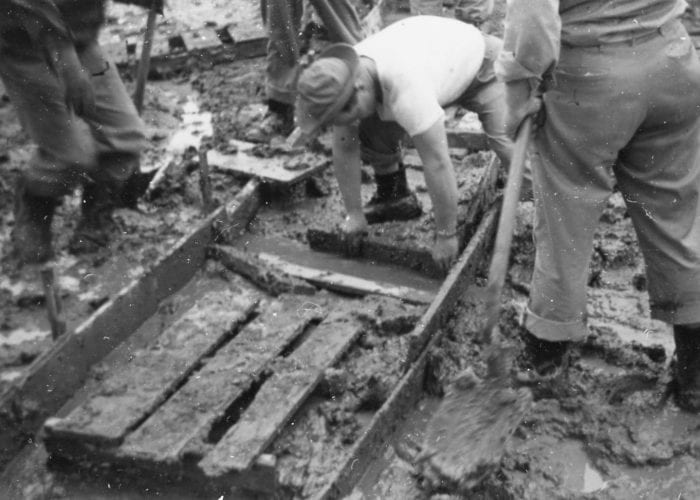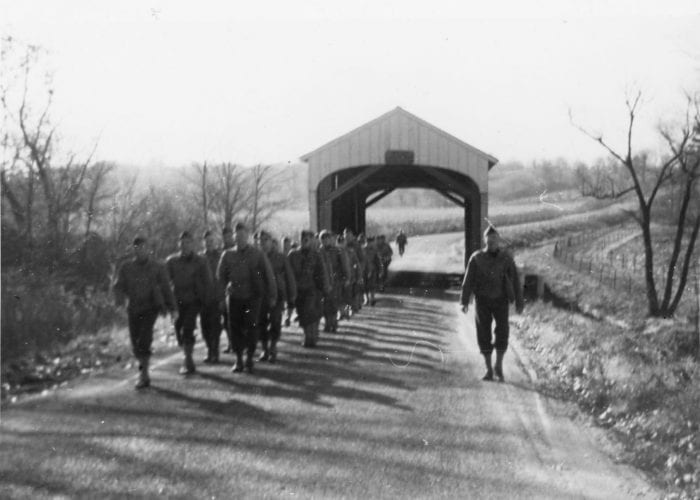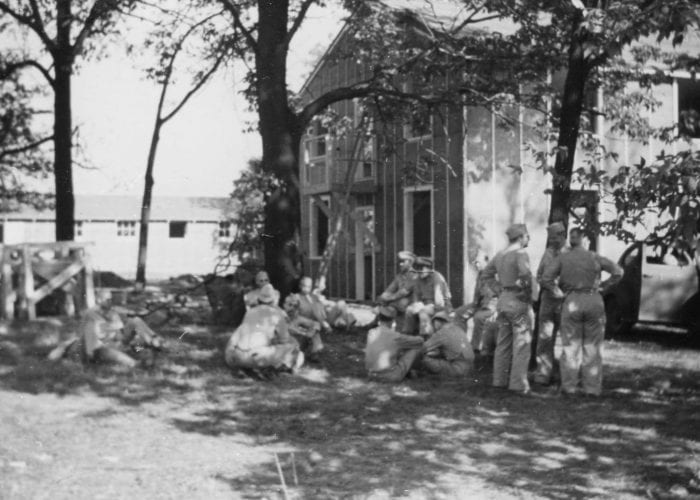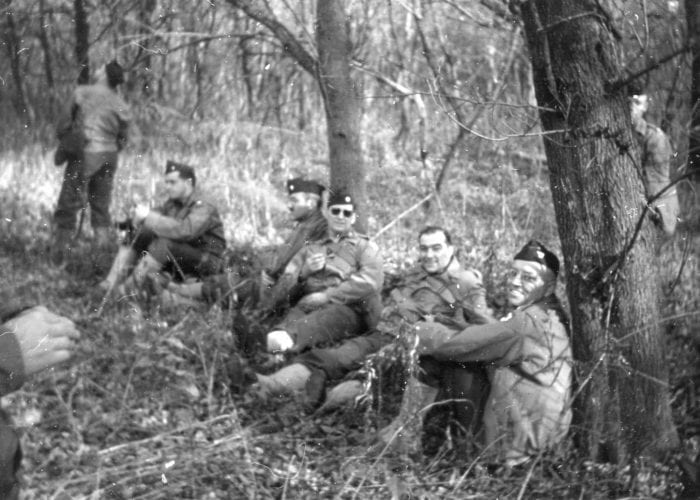Fort Custer
At Fort Custer, 12th General Hospital personnel underwent drills, physically trained to become soldiers, attended military and medical lectures, and took part in surgical sections and group discussions to review material. In the evenings, they often watched War Department films to prepare for being sent overseas. Some members of the 12th General Hospital Unit were assigned to work in the dispensary while others gained experience at the base’s station hospital. While stationed at Fort Custer, 12th General Hospital personnel enjoyed relative freedom, seeing movies, listening to records, playing ping-pong, going into the nearby town, and returning to Chicago fairly frequently for various personal and professional reasons.
Fort Benjamin Harrison
When the 12th General Hospital Unit arrived at Fort Harrison, they set to work laying gravel pathways and roads, installing drainage systems, bridging gullies, and sodding intervening areas due to extremely muddy conditions. Many of the doctors worked in the station hospital to become more familiar with military practices and provided instruction to enlisted men who despite having no previous medical background were expected to carry out the highly specialized tasks that hospital residents performed. Others were assigned to the venereal camp and General Billings Hospital. During this period, the men underwent physical examinations, received vaccinations, and made sure they had the necessary equipment. The nursing staff gained experience by serving those in military hospitals in other parts of the country.
Camp Kilmer
In comparison to Forts Custer and Benjamin Harrison, Camp Kilmer proved to be a bleaker experience for the 12th General Hospital personnel given their inability to leave the grounds, increased censorship of mail, and damp weather. Ruth F. Hoxsie, a thirty-eight-year-old nurse who served in the Unit, recalled in her account Helmets and Bubble Baths, “The whole gruesome scene in this month of November reminded me of Poe’s Raven.” The 12th General Hospital staff continued to receive inoculations and physical examinations, order supplies, pack their trunks, and undergo drills before setting sail for Algeria on December 11, 1942.

